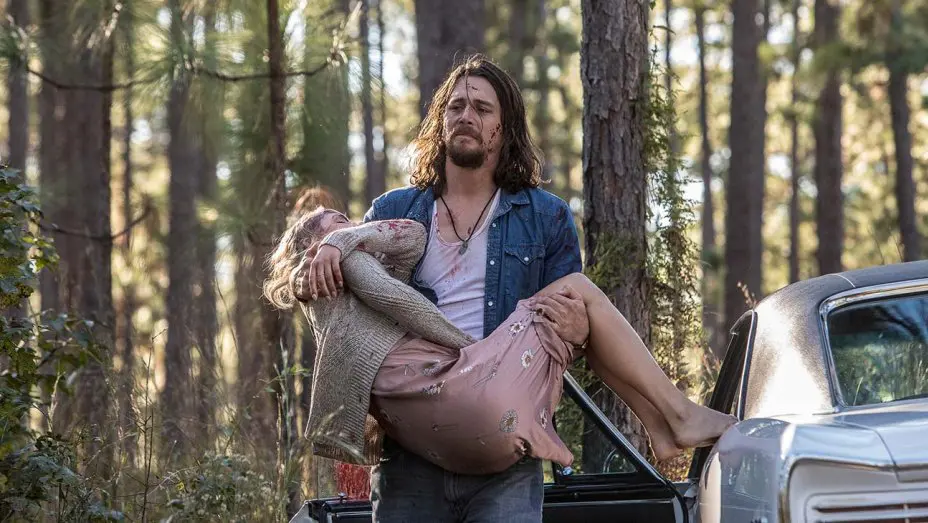Summary
Dreary and contrived with only a couple of decent performances to keep its head above water, A Violent Separation is an unconvincing thriller.
I’m an enthusiastic advocate of Alycia Debnam-Carey, who you might remember as the only watchable part of Fear the Walking Dead‘s dreadful fourth season. And predictably, she does good work here in Kevin and Michael Goetz’s new thriller A Violent Separation, in which she plays a grieving sibling whose single-mother sister, Abbey (Claire Holt), is accidentally shot and killed by her on-again-off-again boyfriend, Ray (Ben Robson). But blimey, I do wish Debnam-Carey would find a new agent, preferably one who picked her better projects than this suspenseless rural slog.
Ray is a stock backwoods archetype; the big, rough-looking cowboy who means well but can’t help getting himself in trouble. His brother, Norman (Brenton Thwaites, who did much better work in DC’s Titans) is just as cliched; the baby-faced down-the-line lawman who is forced to cover up his older brother’s mistakes. The undercurrent of rivalrous siblings is always present, but never really felt, especially once A Violent Separation descends into cookie-cutter melodramatics as Frances (Debnam-Carey) begins to probe deeper into her sister’s death as Ray spirals further into guilt-stricken self-loathing.

This isn’t a particularly long film, but it feels like one. There are aimless subplots involving peripheral characters which amount to virtually nothing, and you get the sense that the whole thing could have been easily wrapped up about twenty minutes earlier if everyone had just got on with it.
The plot, which lacks any sense of momentum, is complicated by Norman and Frances striking up a relationship, and Norman’s boss (veteran character actor Ted Levine) quite clearly seeing through the whole charade, pretty much from the beginning. But this wacky depiction of rural America in which everyone knows everyone else only hinders the film by making it feel small and contrived. There are no real moments of revelation or suspense; eventually, everyone from Frances to her ailing father (Gerald McRaney) just figure everything out on their own, leading to a wholly unconvincing denouement.
A Violent Separation has a good cast and a not-bad premise, but it’s so hampered by poorly developed stereotypes and lackluster writing (the script is credited to the rather inexperienced Michael Arkof) that any potential is quickly subsumed by cliche. A shame, I suppose, given the talent, but as the film itself insists, sometimes tragedy is unavoidable.




